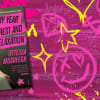Did Pett Kata Shaw reinvent the Bangladeshi horror genre?

Despite its brilliance, the exhaustion of solely consuming foreign horror content for years due to the lack of local ones finds its place after a while. My Thakumar Jhuli conditioned horror appetite was struggling to align with Hollywood ghosts any longer when I came across Pett Kata Shaw, a horror anthology web series by Nuhash Humayun, available now on Chorki.
Four episodes and an experience later, my desperate yearning for an on-screen portrayal of the bone-chilling legends and folklore of Bangladesh was perfectly sated with masterful storytelling, a purely artistic blend of awe and terror, and a beautiful stringing together of visuals and background score.
How do you escape a petni who refuses to eat uncooked fish and how does a mishti loving jinn's gift transform itself into an all-consuming haze of metaphysical dilemma? What waits in a village every superstition in existence originated from, and who calls out to the children from the shore of an unforgiving ocean?
The answers unveil itself as the series gradually constructs an interconnected web of mysteries in a league of its own, each complemented with a frustrating cliffhanger that would make you want to hurl yourself across the room.
Personally, I wasn't a fan of the first episode, Ei Building E Meye Nishedh, mainly owing to the monologue falling short of the expected sense of suspense. Although, the leads did a great job as you could feel both the boarder's fear and the bent legged entity's amusement at said fear quite tangibly. However, the second, Mishti Kichu, and third episode, Lokey Bole, hit it out of the park with incredible themes associated with pride and spiritual revelations along with the origins of superstitions and the interconnection of the outcomes. The mind-boggling weaving of such complex factors within what was expected to be filled with the usual jump scare elements, established these episodes as something so much better than mere horror.
The final episode, Nishir Daak, was comparatively lenient theme-wise but dealt with the subject of mental health issues in a very relevant way. Masuda Khan Juti, despite it being her debut, handled the delicate cruciality of her role quite well. But the visuals of self-harm in the climax sequence were really off-putting as it was painfully hard to watch, so consider this a trigger warning.
However, all the rant about the spectacular spectrum of the storytelling of the series would've been incomplete if not for the wonderful composition of the background music and visual aesthetic of each episode. There's even a bunch of Easter eggs within a few scenes that add a whole new coherence to the stories when found.
All things considered, Pett Kata Shaw definitely did reinvent Bangladeshi horror, a genre that's been woefully under-explored until now.
Hamama's problems smell like daruchini because she's dweep into them 24/7. Send help at [email protected]

 For all latest news, follow The Daily Star's Google News channel.
For all latest news, follow The Daily Star's Google News channel. 







Comments